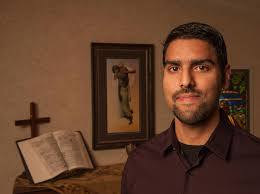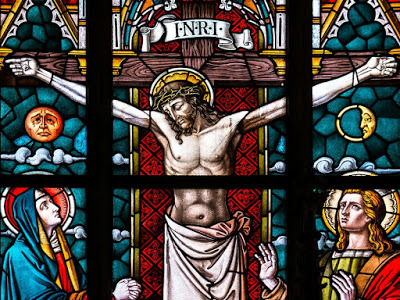Evan Minton's Blog, page 39
September 23, 2017
Tackling The Problem Of Evil - Part 4: Suffering As God's Megaphone

In the previous blog post, we saw that God can have morally sufficient reasons for permitting suffering. We also saw that given the dizzying complexity of how events and choices interact with one another all around the world and throughout history, no mere man is in a position to make a probability judgment as to whether God could have a morally sufficient reason for permitting some event.
Continuing my line of thought that God has good reasons for permitting suffering, I would like to turn no...
Published on September 23, 2017 05:00
September 22, 2017
Tackling The Problem Of Evil - Part 3: The Butterfly Effect

In the previous blog post, we saw that a theistic universe contains suffering because God gave human beings free will, He gave humans free will despite knowing ahead of time that we would go wrong because only in a free-will world, can love be possible, not to mention moral accountability. A possible world where free-will creatures never go wrong was infeasible for God to actualize, if it were feasible, He would have created it. He didn't refrain from creating anything at all because the wick...
Published on September 22, 2017 06:53
September 21, 2017
Tackling The Problem Of Evil - Part 2: The Free Will Defense

In the last blog post, we addressed the logical version of the problem of evil and suffering. We saw that the atheist bore an enormous burden of proof in claiming that God and evil/suffering were logically incompatible, as he would have to show that it is impossible for God to have good reasons to permit suffering and that a possible world of free creatures who never go wrong was feasible for him to actualize. However, the atheist has another version of the argument from evil that doesn't put...
Published on September 21, 2017 05:00
September 20, 2017
Tackling The Problem Of Evil - Part 1: The Logical Version

If God exists, why does evil also exists? This is an intellectual puzzle that is very old. It's an argument against God's existence that is almost as old as the teleological argument for God's existence. I will admit that out of all the arguments against God's existence, this one is one of the most powerful. Now, I don't think it's successful (or else I would have shut down Cerebral Faith a long time ago), but I can certainly see why it would cause thinking people to doubt God's existenc...
Published on September 20, 2017 05:00
September 19, 2017
A Conversation On Whether The Case For Jesus' Resurrection Is Good Enough

Recently, I got a direct message on the Cerebral Faith Facebook page by someone claiming that I failed to establish the historicity of Jesus' resurrection. The person wasn't an unbeliever, surprising. He was a Christian and did affirm the resurrection. He just didn't think I succeeded in making a case for it. The following is the conversation we had. This is posted with his permission. By the way, I make the case for the historicity of Jesus' resurrection in my book "Inference To The One...
Published on September 19, 2017 08:16
September 16, 2017
My Thoughts On Nabeel Qureshi's Passing

Just a few hours ago, I found out that Nabeel Qureshi had passed away. Qureshi was a convert to Christianity out of Islam and has written 3 books, "Seeking Allah, Finding Jesus", "No God But One: Allah Or Jesus", and "Answering Jihad: A Better Way Forward". My friend Richard Bushey gave me a copy of the second one in the list last year when we went to the state of Georgia together for The Christian Apologetics Support Group Get Together. I've been wanting to get his other two books, but I've...
Published on September 16, 2017 16:20
September 15, 2017
A Look At Kirk MacGregor's Argument For Middle Knowledge

Middle Knowledge is foreknowledge of counterfactuals which God possesses logically prior to His choice of which possible world to actualize. It's called “middle” knowledge because the theologian Luis De Molina (the founder of the theory known as Molinism) placed this type of knowledge in between God's knowledge of everything that could happen (Natural Knowledge) and everything that will happen (Free Knowledge) in logical priority. The question isn't whether God knows counterfactuals, but whet...
Published on September 15, 2017 12:26
September 10, 2017
On The Importance Of Having Faith When You Pray

"But when you ask, you must believe and not doubt, because the one who doubts is like a wave of the sea, blown and tossed by the wind. That person should not expect to receive anything from the Lord." - James 1:6-7
This passage from scripture says that when we pray for something, we need to really believe that we'll receive what we've asked for, and that if we don't, we should have no expectations whatsoever that God will answer our prayers. In other words, answered prayer is the product, and...
Published on September 10, 2017 10:12
September 9, 2017
An Objection To Premise 3 Of The Maximally Great Argument For Arminianism

Recently, I posted an argument for Arminianism that combined philosophy and scripture to support its premises called "A Maximally Great Argument For Arminianism". (MGA). The premise got to basic Arminian soteriology from the premise that God is The Greatest Conceivable Being a.k.a A Maximally Great Being. I posted the article in the Molinists group and got pushback from one of the members (Joel) who wrote "'3: If God desires to save all people, He would die on the cross to aton...
Published on September 09, 2017 06:48
September 7, 2017
A Maximally Great Argument For Arminianism

Does God love all people? Does He desire that all people be saved? Did He die on the cross to atone for the sins of all people? I would answer "Yes" to all of the above. But unfortunately, there are many Christians who would say "No" to all of the above. These Christians call themselves "Calvinists" and adhere to a soteriological system called "Calvinism".
In this article, I will defend 2 of the central tenets of Arminian theology: (1) That Christ died for all people, and (2) That God sends pr...
Published on September 07, 2017 07:14



